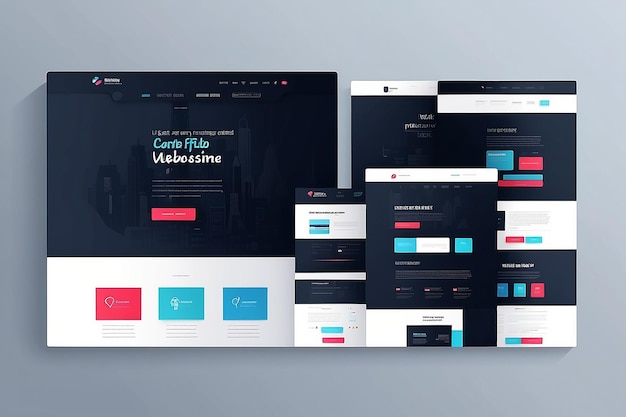
Join our daily and weekly newsletters for the latest updates and exclusive content on industry-leading AI coverage.
Browserbase, a startup from San Francisco, just launched its platform that helps developers automate tricky web tasks using AI and headless browser technology. Their goal is to make web automation simpler, so developers can set up complex workflows without needing lots of infrastructure. Starting today, developers can access Browserbase’s platform on their own and start automating web interactions immediately.
The startup also announced it has secured $6.5 million in seed funding led by Kleiner Perkins, with contributions from Basecase Capital, AI Grant, and several angel investors including Guillermo Rauch (CEO of Vercel), Andrew Miklas (cofounder of PagerDuty), and Barry McCardel (CEO of Hex).
Solving the Headless Browser Problem
Paul Klein, the founder, started Browserbase after facing continuous frustrations with headless browser infrastructure in previous jobs. Klein began his tech career at Twilio before founding Stream Club, a live-streaming startup that was sold to Mux in 2021. After Stream Club, Klein noticed a growing demand for headless browsers to automate web tasks and decided to create Browserbase to address this need.
Browserbase offers a programmable browser platform that allows developers to automate complex online tasks using code. It comes with features like advanced debugging, session recording, a proxy supernetwork, and bot detection avoidance, making it compatible with tools like Puppeteer, Playwright, and Selenium. The startup aims to be a vital part of the growing AI software stack.
Klein envisions that both developers and large language models (LLMs) will eventually write the code for these web browsers to automate daily online tasks.
The AI Automation Opportunity
While headless browsers are often used for web scraping, Klein sees Browserbase as addressing a broader need for task automation, now more feasible with AI advancements. Browserbase is suited for automating workflows, like adding items to a cart or entering a zip code to check shipping times, rather than just scraping webpage contents.
Klein also views Browserbase as a key player in the ecosystem dubbed “LLMOS” (Large Language Model Operating System), where LLMs act as the “brain” and tools like Browserbase serve as the “eyes and ears,” enabling AI to interact with the web.
By positioning Browserbase as a fundamental part of the AI ecosystem, Klein believes it will play a significant role in the next generation of AI-powered applications and automations. He compares this to Twilio’s growth driven by the mainstream adoption of two-factor authentication.
As businesses increasingly turn to AI and automation, the demand for tools like Browserbase is expected to grow, positioning the company as a vital part of this emerging market.
Empowering Enterprise AI Developers
Browserbase integrates seamlessly with popular AI and machine learning tools and frameworks like Langchain, LlamaIndex, Crew AI, and Vercel. It provides SDKs in Python and Node.js and can automate both public websites and internal authenticated enterprise applications.
Klein foresees Browserbase as a “last-mile” solution for making the web accessible to AI. Many websites will never get updated, akin to tree rings, and while a universal API for the web may not be feasible, AI will eventually learn to navigate the web on its own, requiring tools like Browserbase.
For enterprise developers, Browserbase’s platform is invaluable, especially for automating internal applications lacking modern APIs. Enterprises often rely on legacy systems, and Browserbase enables developers to automate these as if interacting directly through a browser, bypassing the need for direct API access.
Significantly, Browserbase offers an on-premise deployment option, allowing organizations to run the platform behind their own firewalls. This is crucial for enterprises with strict data governance and security requirements, ensuring sensitive data remains secure.
By blending headless browser automation with on-premise deployment, Browserbase enables enterprise developers to modernize complex workflows while maintaining stringent security.
Pricing and Availability
Browserbase is now open for self-serve access, letting developers start automating web interactions right away. The company offers three pricing tiers:
– Hobby Plan ($39/month): 200 browser hours, 2 GB of proxies, 3 concurrent browsers, 7-day data retention, auto captcha solving, and basic stealth mode.
– Startup Plan ($99/month): 500 browser hours, 5 GB of proxies, 50 concurrent browsers, 30-day data retention, auto captcha solving, and advanced stealth mode.
– Enterprise Plan (Custom Pricing): Self-hosting options, dedicated proxies, 100+ concurrent browsers, 90+ day data retention, auto captcha solving, and advanced stealth mode.
“We believe in providing a high-quality, reliable service that developers can trust,” Klein emphasized. Developers can sign up and start building with Browserbase today by visiting the company’s website.
Scaling with Fresh Funding
With the new $6.5 million in funding, Browserbase plans to expand its engineering team and focus on product development. The funds will also help enhance market reach as the company aims to become a cornerstone of AI applications.
Browserbase is committed to maintaining an all in-person team based in San Francisco, believing that working together physically fosters better communication and collaboration. Although this has made hiring more challenging, Klein feels it ensures they attract people who are genuinely committed to their vision.
As Browserbase launches its platform, Klein is excited to see what developers create, viewing the platform as a solution to a long-standing problem he faced as a developer.
“Headless browsers felt like my own little world, this one problem I was obsessed with,” Klein reflected. “Meeting customers who find it helpful is very validating. There are many developers who’ve felt this pain, and it’s great to alleviate that with Browserbase.”